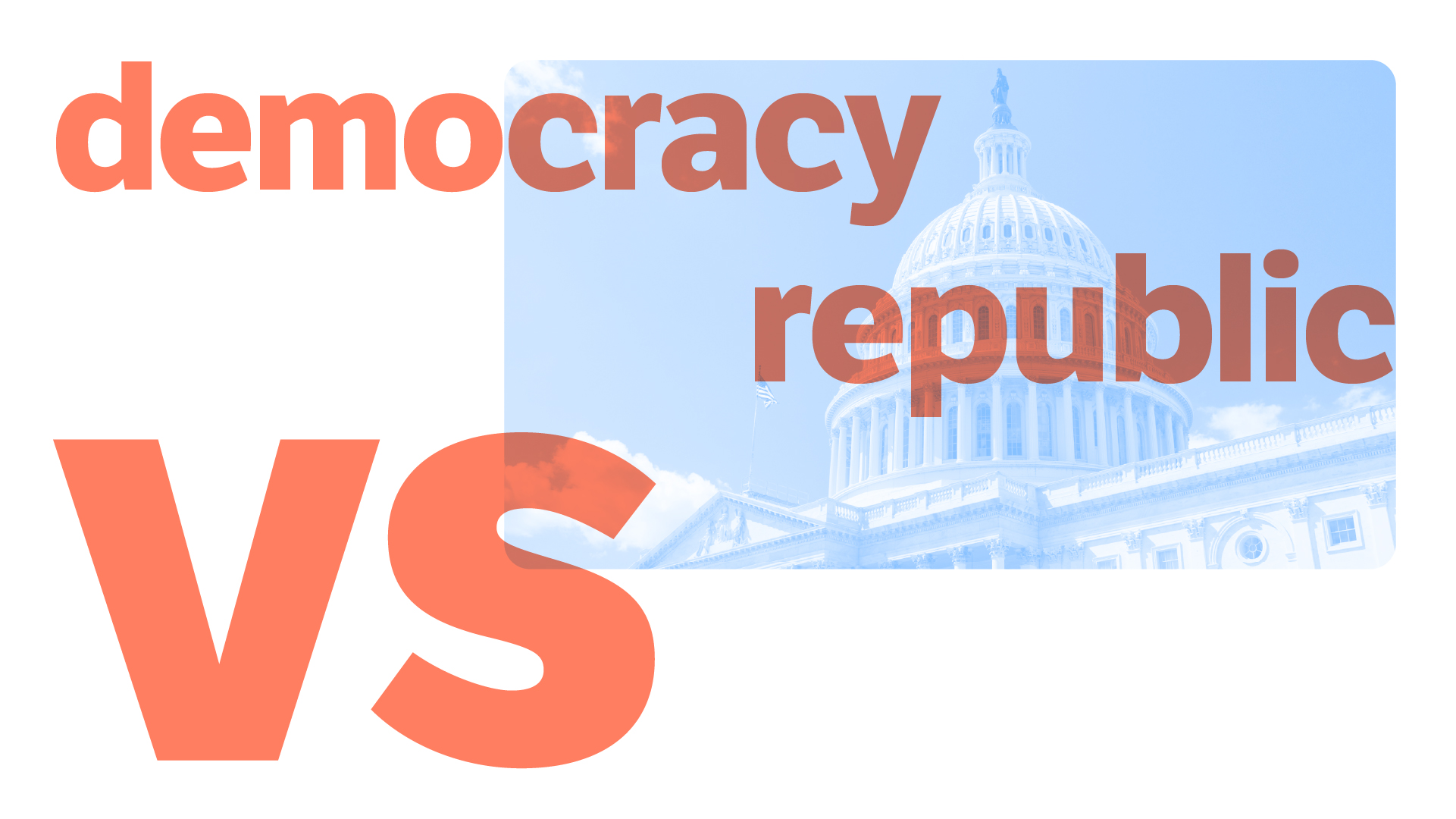That site is hardly the universal definition of political terms. Do you even know who wrote it? The About Us page says the Content Editor is a paralegal; one of the two contributors is a lawyer, the other is a legal secretary. None of them mention any political science or history background in their bios. It's also poorly written; it vacillates between discussing democracy and
pure democracy, then uses the Pledge of Allegiance as legal support.
But, if you want to throw down with legal definitions, let's look instead at the meanings from
Black's Law Dictionary. It is the source most often used by people in the legal profession, and the definitions from it are also available online.
A republic:
Find the legal definition of REPUBLIC from Black's Law Dictionary, 2nd Edition. A commonwealth; a form of government which derives all its powers directly or indirectly from the general body of citizens, and in which the executive...

thelawdictionary.org
It references
Federalist 39, in which James Madison writes about what kind of republic we are to have. He mentions republics such as Venice, Poland, and England, in which those who vote are members of a privileged class, which is not the type of republic our system should have. Instead, we should be a republic where
every citizen votes for their representatives, which is pretty clearly the definition of a democracy.
The Federalist Papers were a series of essays written by Alexander Hamilton, James Madison, and John Jay under the pen name "Publius." This guide compiles Library of Congress digital materials, external websites, and a print bibliography.

guides.loc.gov
Back to Black's Law Dictionary, now. A democracy:
Find the legal definition of DEMOCRACY from Black's Law Dictionary, 2nd Edition. That form of government in which the sovereign power resides in and is exercised by the whole body of free citizens; as distinguished from a...

thelawdictionary.org
"Derives all of its power ... from the great body of the people" vs. "Power resides in ... the whole body of free citizens." The American system fits both descriptions. We are both a republic and a democracy.
I'll repeat this as well: This argument is often a sign that the person or group making it is trying to weaken our system. It isn't always the case, but there are plenty of bad actors out there who shout "We are not a democracy!" as a precursor to trying to move us toward some sort of authoritarianism. That makes this enough of a red flag that if any of us who care about our nation hear it shouted on the street corner, we would do well to think very critically about why this person wants us to redefine our belief about it so badly.

 Just know that in the game of life, I always win.
Just know that in the game of life, I always win.


